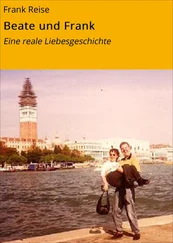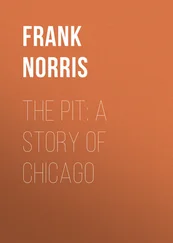When I returned to Adam’s suite Mary Ellen was packing. She was crying without any noise. Tears kept coming into her eyes, and she’d wipe them with the back of her hand, but she wasn’t letting even a sniffle escape her. Finally she turned to me and said, “You don’t have to tell me to get out. I knew when you got that call last night that I’d have to go.”
“Now take it easy, Mary Ellen,” I told her. “It could be a lot worse.”
“What did they decide?” she asked.
“Well, they decided that A.I. had to start right away. That was the first thing. And they thought it best that you and Homer separate for a while. Anyway, it would be pretty embarrassing for you to stay just at this time, now wouldn’t it, Mary Ellen?”
“I don’t think so,” she said in a small voice. “I don’t think it would be so terribly embarrassing.”
“Oh, sure it would,” I told her, trying to sound convincing. “Anyway, this separation is just temporary. Just as soon as production levels off, and is placed on a sound basis, you and Homer will be able to be together again.”
“I wish I thought so.”
“What makes you think it won’t happen?”
She stood up, very straight, unashamed of her tears and her anger. “It’s that girl—The Frame. She’s after him again!”
“After him?”
“She called him from California this morning. What does she want? Why does she keep after him?”
“What do any of them want? She wants to have a baby, I guess.”
“No, it’s deeper than that. Steve, I’m afraid. I’m terribly afraid!”
I remembered the glimpse of the fanatic The Frame’s face had unmasked just before she boarded her plane. In a vague sort of way, I was afraid, too, but all I said was, “Stop worrying. I’ll take care of anything that comes up. Did you say anything to Homer?”
“No. I was with him in the living room when the call came in, and afterwards I asked who it was, and he told me, and all I could say, naturally, was how nice that she had called.”
“What did he tell her?”
“He just grunted, and said yes and no. Of course he knew I was listening.”
“Where’s Homer now?”
“In the kitchen, brooding.”
I went into the kitchenette. Homer was staring into a tumbler of milk as if he expected something to poke its head out of it. I told him about the meeting of the Planning Board. It didn’t seem to affect him any more than if I were describing a Friday afternoon session of the Hyannis, Nebraska, PTA. I said, “I understand Kathy called this morning.”
“Yes,” and then: “Steve, I can’t forget her. I keep thinking about her all the time.”
“Mary Ellen,” I told him, “loves you. Mary Ellen is taking a terrific beating, without complaining. Mary Ellen is my nomination as a swell wife.”
“Oh, I know it, Steve. Mary Ellen is wonderful. But how can I help it if I keep thinking of Kathy? I can’t control my thoughts, can I?”
“I suppose not,” I said. I told him he’d get his final physical the next day, and that A.I. would begin on Monday, if everything went according to schedule. He didn’t seem to mind. He kept staring at things without seeing them, and I wondered what The Frame had told him that made him act like he was the central figure in a hashish dream.
We took Mary Ellen to the station and put her on the New York train. They seemed to have a lot of things to say to each other, but they didn’t mean anything. She would write every day, and tell him how Eleanor was getting along. He would write every day, too. She hoped he wouldn’t have to be away from the baby so long—he should see how she was changing. He said he was sure Steve would fix it up for him to visit Tarrytown, but not just now of course. She said she didn’t think this A.I. would be as bad as he expected. He said he supposed he would get used to it.
I told Mary Ellen that pretty soon she should buy some spring clothes, and send me the bill, because all that was included in the N.R.P. budget, and she should buy all she wanted.
She leaned down from the train steps and kissed him. She kissed him hard, and clung to him. I knew what she was thinking. She was thinking that probably she would not see him again.
Back in the hotel, I telephoned Tommy Thompson, and he promised to be in Washington in the morning. “I’ll bring a surprise for you,” he said.
Homer and I played gin until midnight. The twelve o’clock news led off with an excited announcement that, doctors willing, A.I. would begin on Monday. As yet, the identity of the first A.I. mother, “destined to again carry forward the banners of humanity,” had not been revealed.
Dr. Thompson arrived in the morning. He didn’t come alone. He brought Marge, Maria Ostenheimer, and J.C. Pogey. “This is the visiting delegation,” he explained. “I hope you have room for us.”
I told him to look around, and pick their own bedrooms. We had them to spare. “All except you,” I told Marge. “You know where you sleep.”
“Yes, darling,” Marge said, docilely.
“Why are you being so nice to me? What are you up to?”
“Why, nothing, sweetheart. Aren’t you glad to see me?”
“Certainly I’m glad to see you, but when you get sugary like this I know that you’re up to something, or you’ve done something bad.”
Maria said that was nonsense, and that, as she always knew, I was a nasty and suspicious man. J.C. Pogey went prowling around, and said that the Adam suite was a classic example of government waste. He had counted eight bedrooms, and six baths, and there were only three people living in it, if you included Jane, who sometimes spent the night.
“I’ll tell you how it is,” I explained. “If A.I. doesn’t work, we’re going to use it as a sort of high-class male brothel.” Marge said I ought to be ashamed, and that I had shocked Homer, and indeed this was true, for his face was the color of his hair.
I noticed that Tommy kept watching Homer, closely, not saying anything. But I wasn’t worried, because Homer appeared to be in good spirits, his seizures of the shakes seemed to have deserted him, and he was even talkative.
At eleven o’clock Tommy and I took Homer to the U.S. Public Health Service for his examination. There were nine or ten doctors, representing all the departments and agencies that had their hand on the erratic pulse of this important human. They inspected him for an hour, and then went into conference for a few minutes, and then they came out and Tommy told me, “He’s okay. We’re getting out an official report—that is, the Surgeon General will get it out—but the main thing is that you can use Homer Adam on a limited scale.”
“What do you mean, ‘limited scale’?” I asked.
“Well, so long as everything goes along evenly, we can use Adam for the impregnation of, say, two or three women a week. After he gains more weight and his metabolism perks up he can be used more frequently, providing that there are no glandular disturbances. Of course, if he were subjected to great emotional shock, or his general physical condition started to get worse instead of better, then we’d have to call it off. But for now, you can go ahead.”
I almost shouted. I’m afraid I ran to the telephone like a cub reporter with his first flash. I called Abel Pumphrey, and gave him the news, and then I called Danny Williams at the White House. Danny was a little cagey, and made me repeat everything Tommy had said, and then he asked me: “I suppose you feel your job’s over now?”
I said, “I have only one life to give for my country, and believe me, bud, I have given it!”
“Oh, no you haven’t,” he told me. “We’ll be satisfied when A.I. is S.O.P.” [1] Artificial insemination is standard operating procedure.
Читать дальше












